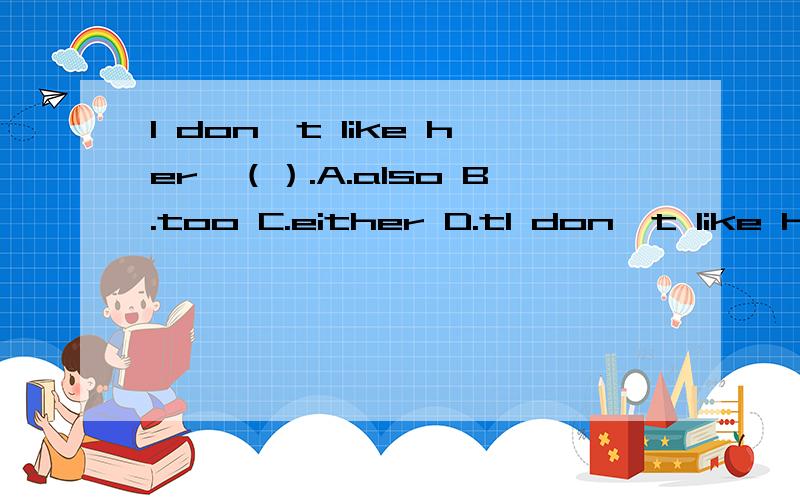I don't like her,().A.also B.too C.either D.tI don't like her,().A.also B.too C.either D.to
来源:学生作业帮助网 编辑:作业帮 时间:2024/07/30 09:20:10

x��Q�JA~���f�}�EH��1̄$q�X*H�m
�������Z7(h3�i���\�
����"x�ݙ���7���}th�v,T�
��Q�����t�"��Xm(O,�@R�XD{��Z`�um����9�!Q3s��u��,�$Ȣ>�\��tx�y
��ONŹ��}M��/�I
��Ko��_/��ǎ�%}�R>����+)�} �5 �,f��ϛ�?Ko��<��IB��\
�P
�W�K#5g1o�PY`�s-�&�{����\��c�Mvt�ak��?��C>k C�ǁ����m���n���D2��ܕ
Uo�B��Gw�
I don't like her,().A.also B.too C.either D.tI don't like her,().A.also B.too C.either D.to
I don't like her,().A.also B.too C.either D.t
I don't like her,().
A.also B.too C.either D.to
I don't like her,().A.also B.too C.either D.tI don't like her,().A.also B.too C.either D.to
also比too正式一些,语气较重,只用于肯定句,一般紧靠动词.
too语气较轻,多用于口语,用于肯定句与肯定问法的疑问句,通常位于句末.
either用于否定句与否定问法的疑问句,放在句末,之前不加逗号.
答案是C
B
应该是c 用于否定句
选c
C .
C
C 否定句中用either